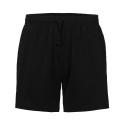- label News
- favorite 0 likes
- remove_red_eye 16612 views
- comment 0 comments
Fleece clothing is very popular at the moment. However, it has one disadvantage, which is pilling. You can delay this process by choosing carefully and using appropriate care.
Use and care of fleece
Fleece fabric is to a large extent manufactured from 100% polyester. An interesting fact is that recycled PET bottles are also used for its production. The twisted fibre is created then twined, and then modified into a strand with a wire brush. This makes the fabric excel with good insulating properties even in a wet environment.
· In the same way that fleece fabric requires a slightly unusual production process, it also requires a special maintenance procedure.
· It is definitely not recommended to use conditioners, or washing powders with detergents.
- If you want to preserve the fleece’s visual and usable properties in the long term, buy special washing powder in a sportswear shop.
Can pilling be prevented?
The most significant disadvantage of clothes made from this modern fabric is pilling. This unpleasant and undesirable process cannot be stopped in principle, but it can be at least partially delayed.
o What causes pilling?
- Damage to the strand fibres during wear and maintenance. The fibres fray, and lumps form. You can also delay this process by not using a tumble dryer, and washing the clothes inside out.
The good news for everyone who is fond of fleece is that, thanks to modern processing technologies, fleece materials have a denser and therefore stronger structure. Pilling is therefore effectively reduced, and the clothes will stay the same quality for longer. But it is necessary to buy first-class products. Fleece is currently used for the production of many garment parts. You may come across it in classic sweatshirts, but also in gloves, hats and headbands.
· You can even buy fleece blankets, which will serve you well, particularly in the countryside.
· You won’t be cold on a fleece blanket, and unpleasant moisture won’t pass through it so easily either.


Comments (0)